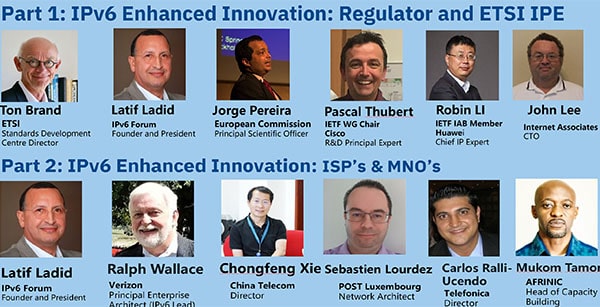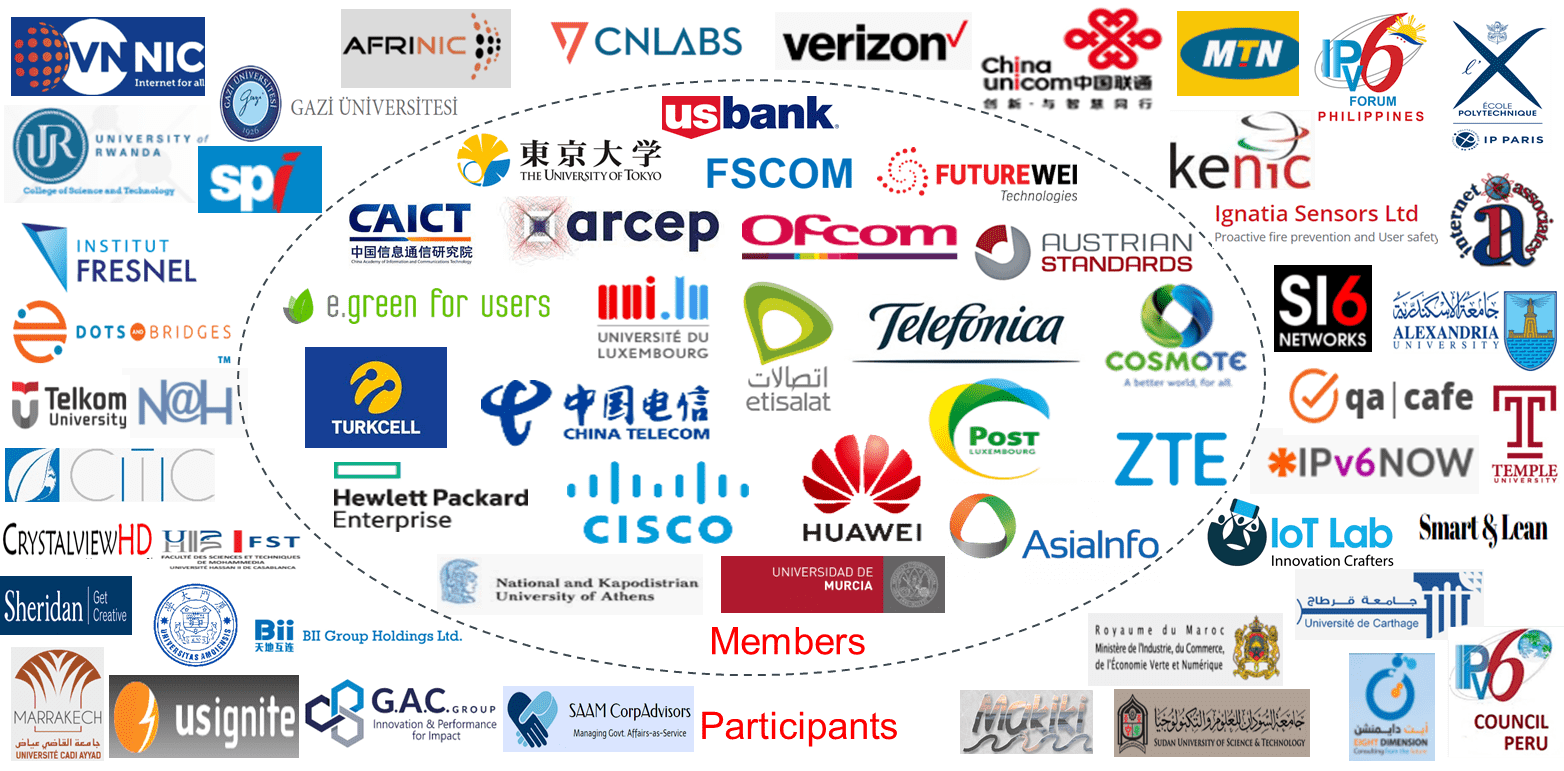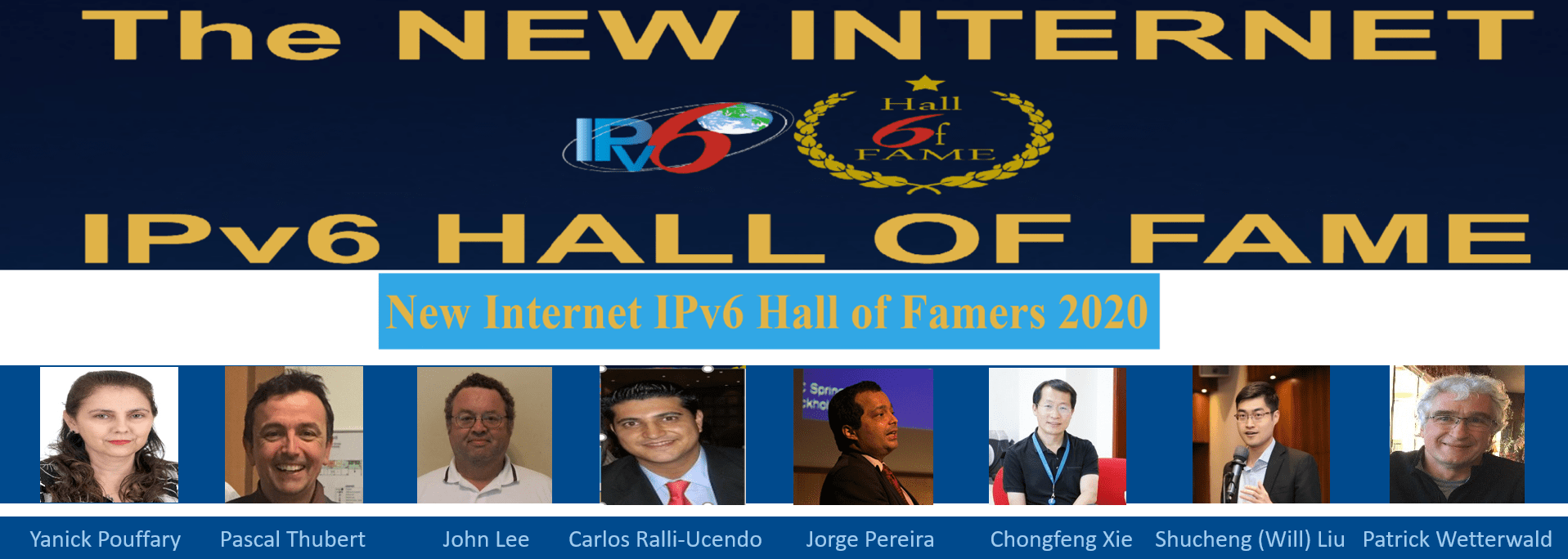The webinar ‘IPv6 Enhanced Innovation: the IPv6-Only Future in the 5G, IoT & Cloud Era’ was held by ETSI on September 13th. Experts from government institutions, operators, manufacturers and research institutes, shared their vision and the progress made to date within ETSI IPE (IPv6 Enhanced innovation).

Approved by ETSI in October 2020, ISG (Industry Specification Group) IPE, as a follow-up of the ETSI ISG IP6, with the prime goal at producing best practices to promote global IPv6 adoption, reference e2e architecture including emerging business scenarios and recommendations to accelerate global IPv6 adoption. Starting with 9 reports, IPE has already published its first report on the IPv6 Gap Analysis involving more than ten stakeholders, pointing out the usability of IPv6 in all scenarios and the need to continue the IPv6 Enhanced innovation addressing the features of ubiquitous connectivity, ultra-high bandwidth, automation, low latency, deterministic quality and security.
Anthony Brand, Director of Standards Development Centre, ETSI, opened the webinar by introducing ISG IPE’s achievements during the past 9 months: involvement of more than 60 players, 3 IPE plenaries and 9 work items launched. He states that IPv6 Enhanced innovation introduces the empowering features for the new use cases in the 5G and Cloud era. ISG IPE’s efforts in collaboration with other standardization bodies such as IETF was also commended.

Latif Ladid, Chair of ETSI ISG IPE, highlighted the most recent IPv6 policies in France, UK, USA and China within an IPE policy workshop in June 2021. The main progress of ISG IPE was summarized, and the IPv6 Hall of Fame was announced involving top experts leading the technology within the industry.

Jorge Pereira, European Commission, introduced the challenges and future of 5G for CAM (Connected and Automated Mobility). The role of 5G was emphasized and the importance of IPv6 in providing unique addresses as well as facilitating service continuity were discussed.
Pascal Thubert, IETF 6TiSCH/LPWAN WG chair from Cisco, had a disclaimer to underline that IPE starts where the IETF ends and there is a need of unbiased education/information about best practices. He showed how utilization of IPv6 for industrial networks is the logical evolution due to the deterministic behavior they have. This is where the needed IPv6 Enhanced innovation happens.
Robin Li, IETF IAB member from Huawei, recapped the major findings of the GAP analysis use cases recently published. He believes that no technical issues prevent the transition to IPv6, and IPv6 Enhanced innovation is future-proof.
John Lee from Internet Associates, rapporteur of the IPv6-Only use cases underlined that US government has an ambitious goal: transferring 80% of the Federal network by 2025. The IPv6-Only transformation needs to start as soon as possible, leveraging on technology update, to avoid high cost if forced at last moment.
Ralph Wallace from Verizon, having past experience with the US government and IPv6 policies definitions said that solid IPv6 background and current good level of adoption enable the definition of IPv6-Only policies. IPv6 is the only option to ensure future growth and Internet innovation enforcing cybersecurity principles.
Chongfeng Xie, China Telecom, underlined the importance of IPv6 in data center and cloud integration. IPv6 Enhanced Innovation could break the barriers of multi-protocol architectures of computing, storage, and service networks and build a hyper-converged network architecture.
Sebastien Lourdez, POST Luxemburg, introduced that in 5G networks, thanks to SRv6, the representative IPv6 Enhanced innovation, operators need no more MPLS, RSVP, LDP, and can get powerful service chaining features, extendable protocol defined as needed.
Carlos Ralli Ucendo from Telefonica illustrated how multinational sectors embrace IPv6 and the next steps to take. He underlined how some of their customers are suffering from the cost of IPv4 and the complexity of international VPN. IPv6 solved most of the above problems.
The webinar had great success by having all the experts and industry leaders sharing their experience and vision in IPv6 Enhanced innovation. The ISG IPE members and participants are determined to shape the future Internet with all the stakeholders – you are welcome to be part of it!